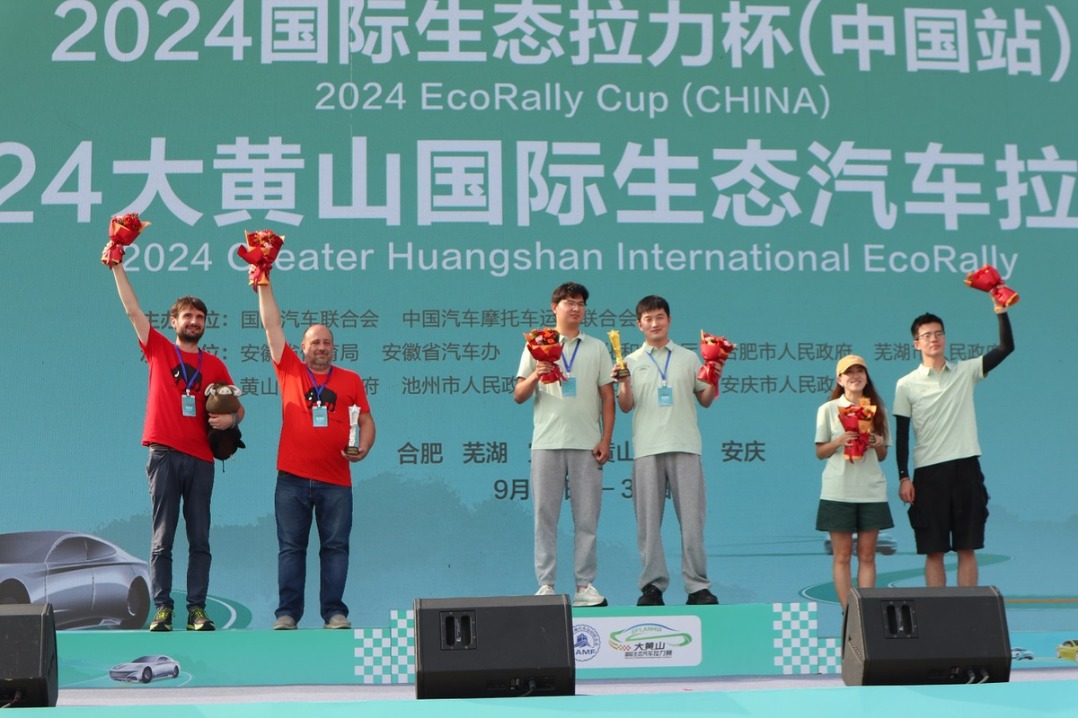Rescue group founder welcomes guideline

The founder of a civil rescue group that has taken part in rescue operations at home and abroad has welcomed a pledge by central authorities to foster more voluntary groups specializing in disaster relief and help with their capacity building.
The pledge was included in a guideline on promoting voluntarism that was released on Monday with the aim of legalizing voluntary groups' involvement in missions ranging from responding to disasters to caring for vulnerable communities.
Zhang Yong, who founded Blue Sky Rescue in Beijing in 2008, highlighted the importance of capacity building for organizations like his, especially smaller ones that tend to lack professional skills and equipment.
"Some groups have enthusiasm but run short of capacity," he said, adding there had been multiple instances in the past where less-qualified volunteer rescuers were trapped during their operations, further complicating relief efforts.
The guideline also seeks to expand Chinese volunteers' presence overseas.
In recent years, some voluntary workers have reported being declined entry to disaster-hit regions due to safety concerns. Others have risked the displeasure of their employers to engage in such efforts, for which paid leave is often required.
To bolster the legal standing of such undertakings, the guideline issued by the Communist Party of China Central Committee and the State Council, China's Cabinet, urged the incorporation of nonofficial rescuers in the nation's emergency response system, with a view to deploying them alongside other forces, most government-led, such as fire departments and the military.
It called for a sound system to effectively organize voluntary workers to rescue victims and ship crucial supplies, and ensure such involvement is "law-abiding, scientific and efficient".
Zhang hailed the guideline as a boon to nonofficial rescue forces and said it would enable them to better assist State-led relief task forces in emergencies. But he also said that smaller rescue teams might need to shift their focus from the front lines of major disasters to communities, where emergency responses tend to be less demanding.
The guideline also encouraged Chinese volunteers to venture abroad and step up their presence in countries involved in the Belt and Road Initiative, and form partnerships with their foreign counterparts and international agencies to make themselves more influential.
Rules will be improved to govern cross-border operations, it added.
Blue Sky Rescue has operated in countries including the Philippines, Myanmar and Sri Lanka in recent years.
Zhang said it had carried out 15 operations overseas so far, many of which were well-received by local governments and people, and had strengthened mutual bonds.
"I believe that it is an overall trend for Chinese social organizations and humanitarian rescue organizations to go abroad," he said. "As long as you sincerely and solidly help the local people, it will definitely promote the unity and mutual recognition between the two peoples. This is the role that nongovernmental organizations play, which official organizations cannot replace."
A blue book on China's charity sector published by Social Sciences Academic Press said 279 million Chinese people offered voluntary services in 2022. Their service time added up to more than 4 billion hours that year and was worth 191 billion yuan ($26.4 billion).
The nine-part guideline said China aims to form a "complete, scientific and efficient" voluntary service management system by 2035, and a strong voluntary sector will be a signifier of the socialist cultural power that China is seeking to become.
It said that employers — public and private alike — will be encouraged to support voluntary undertakings by their workers as part of corporate social responsibility, and that voluntary experience will serve as a crucial reference in recruitment and commendation.
- Elliot's exploration of Confucius cultural festival
- International NEV rally concluded in Anhui
- Conservation at Sanjiangyuan: Protecting the roof of the world
- Inspirations for change: Inner Mongolia's green development
- British journalist witnesses commemoration of Confucius
- Feeding koi fish at Kong Family Mansion in Quzhou





































